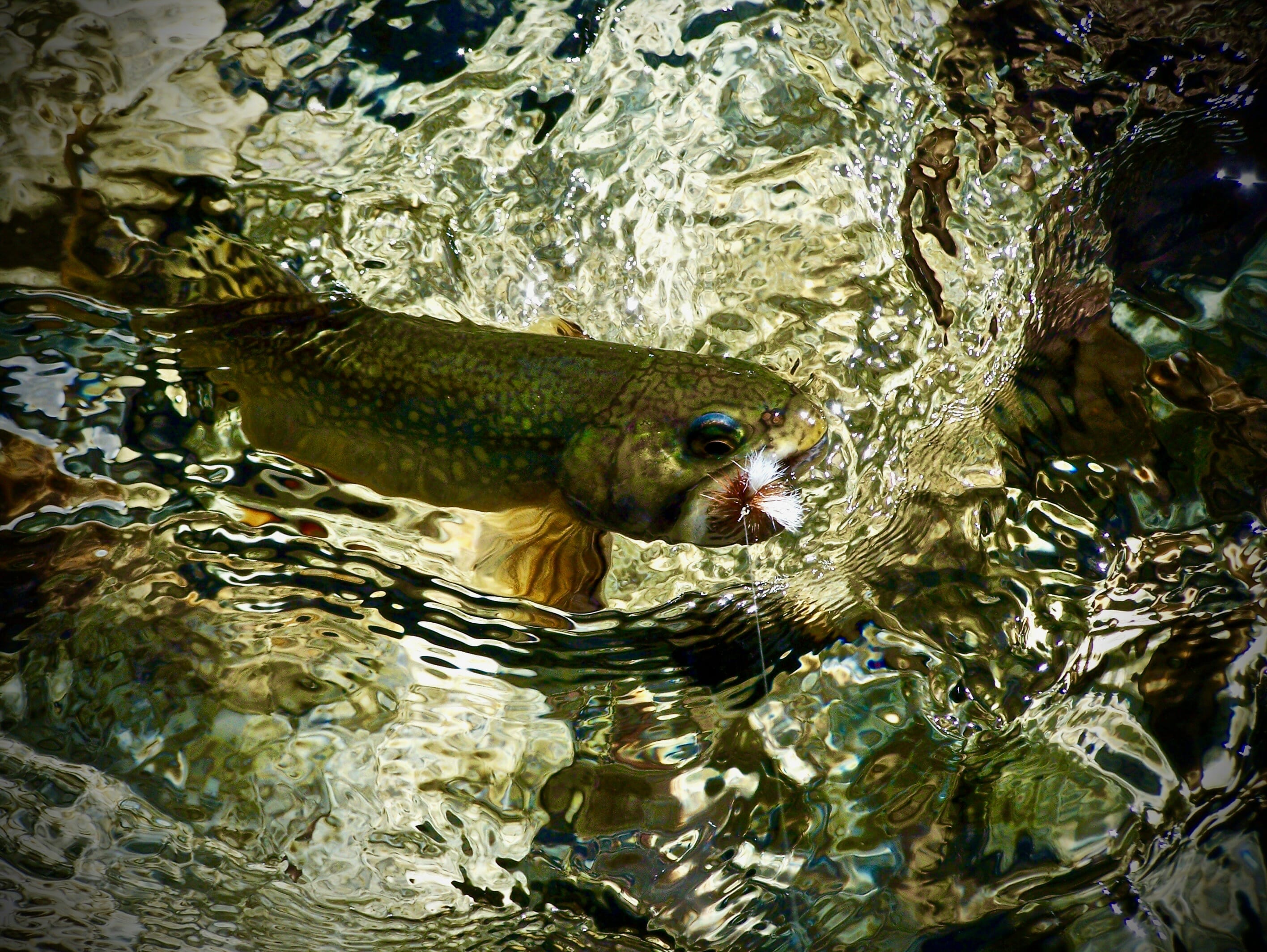A brook trout falls for a Royal Coachman, a fly many believe is a “killer pattern” for backcountry trout. Should we redefine our angling lexicon?
By Kirk Deeter
I received an interesting message the other day from a good friend of mine, who basically asked me to reconsider words like “killer” or “deadly” in my fishing writing. I respect this person a lot, and I’m not going to put him on the spot by naming him here. His note got my wheels turning, and I have to admit I’m still not entirely sure how I feel.
On the one hand, he’s right. If we want to act responsibly, and demonstrate a conservation ethic, and if we care that our actions reflect that ethos, maybe we should pay closer attention to those words. As an editor, I now consciously work around photos with the big fish hoisted out of the water. It used to be that those were statement photos—real attention getters. But now, as more folks embrace the “keep-‘em-wet” mentality, those shots are sending a different message. If we wouldn’t run a shot of a fish hoisted out of the water with a story on catch-and-release fishing (or even an essay that exudes a respect for nature) why then would we run a caption under a carefully-composed photograph of a dripping fish that says that fish was caught on a “killer” fly pattern?
On the other hand, I’m a big fan of lean writing, and if you say a certain streamer pattern is absolutely “lethal,” 99 percent of the time that has absolutely nothing to do with killing fish. Instead, it’s an effective play on words, and the readers get it right away: that pattern is a sure-bet, proven performer. Maybe I should say “trout magnet” instead.
I do cringe a bit when I hear people talking about “ripping lips” and wishing each other good luck at the boat ramp by shouting “tear ‘em up!” But I’m also not sure that the PC police need to get into the word choices of anglers. Let’s not kid ourselves. The sport is about pulling a living creature around by the mouth. I’m not sure the steelhead running for its life on the other end of your line really cares about the phrases you utter, no more than they genuinely appreciate the fact that you keep them wet, remove the hook and let them go.
And before you ask, yes, I do kill fish, keep them and eat them now and then. That’s a good thing, so long as you play by the rules.
It’s all interesting food for thought. In the end, I think maybe editors and writers who depend on a conservation-minded voice might adhere to a bit higher standard. A picture is worth far more than 1,000 words if the photo is thoughtful and the words are not. I’m not going to swear off “killer” all the time, every time, but I am going to be thinking through word choices a bit more carefully.
I am grateful that my friend raised the issue.
Kirk Deeter is the vice president of Trout Media and the editor of TROUT Magazine. He lives and works in the mountains west of Denver.



